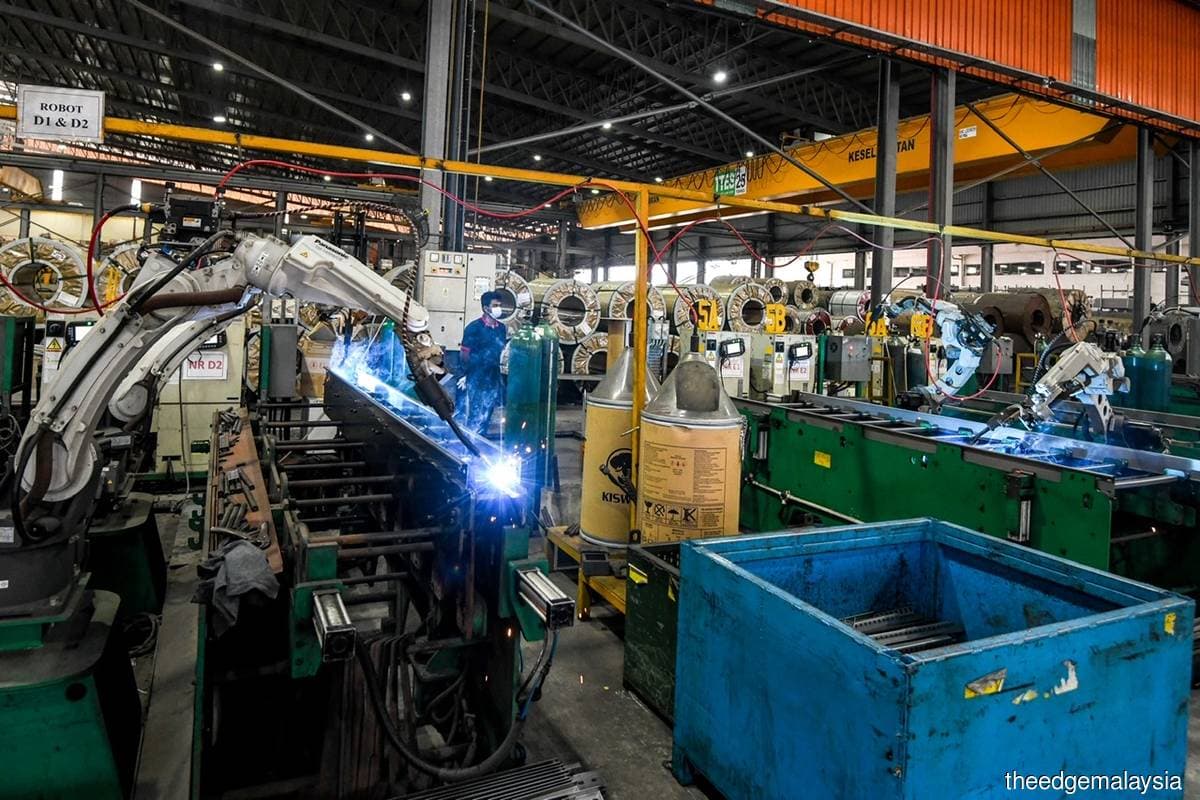
KUALA LUMPUR (Jan 3): Economists expect production recovery in the upcoming year, after the Malaysian manufacturing sector remained subdued in December 2023, as weak consumer confidence and moderate production more than offset easing inflation and improved employment.
“Looking ahead, there is optimism that new orders will rebound, buoyed by growing confidence in an upcoming rise in production over the next 12 months. The existing subdued demand environment has kept optimism levels relatively steady since September, though concerns persist regarding the speed and timing of the anticipated recovery,” TA Securities said.
Echoing the sentiment, Public Investment Bank anticipates the deceleration trend in the manufacturing sector to persist before potentially bottoming out in the latter part of the first half of 2024.
“Given the persisting interplay of prevailing factors that mirror enduring fragility in external demand, our assessment suggests that Malaysia's purchasing managers index (PMI) is likely to remain on a trajectory mirroring the global manufacturing PMI, forecasting a continued position below the pivotal 50-point threshold in the near term.” Public Investment Bank added.
In separate economic updates on Wednesday, the research houses noted that the Malaysian manufacturing PMI stayed at 47.9 in December 2023, below the 50-point threshold, indicating a contraction since August 2022, according to a report by S&P Global.
Regionally, Malaysia’s PMI lagged behind Vietnam (48.9), the Philippines (51.5), Singapore (52), and Indonesia (52.2), while the Asean manufacturing sector as a whole ended the year on a subdued note, scoring 49.7, a decline from the previous 50 points.
The research houses added that the weaker consumer confidence resulted in total new businesses moderating for the 16th consecutive month, with the demand conditions in international markets also easing, as new export orders fell for the eighth month in a row.
“With customer demand remaining muted, manufacturers scaled back production, but the moderation was the slowest recorded since August. Meanwhile, stocks of finished goods were wound down at the fastest pace since September, as firms used existing stocks to fulfil orders,” the research houses added.
Despite the challenges, Malaysian manufacturers exhibited resilience by increasing employment for the first time in eight months and reducing outstanding business at a marginal rate.
Meanwhile, input cost inflation eased for the first time in three months, due to high raw material prices that were affected by the exchange rate weakness. Consequently, output charges increased, with inflation remaining stable.
